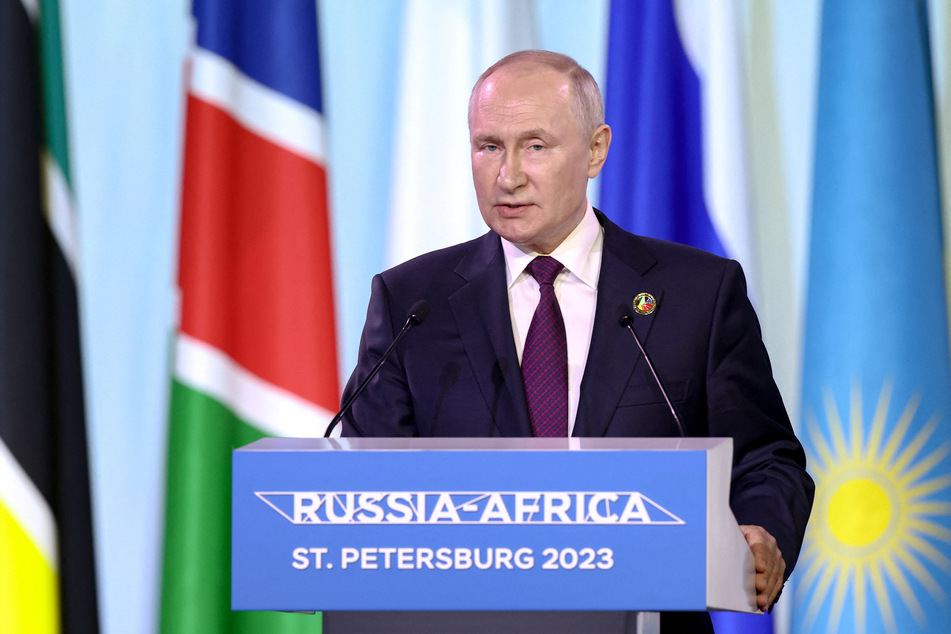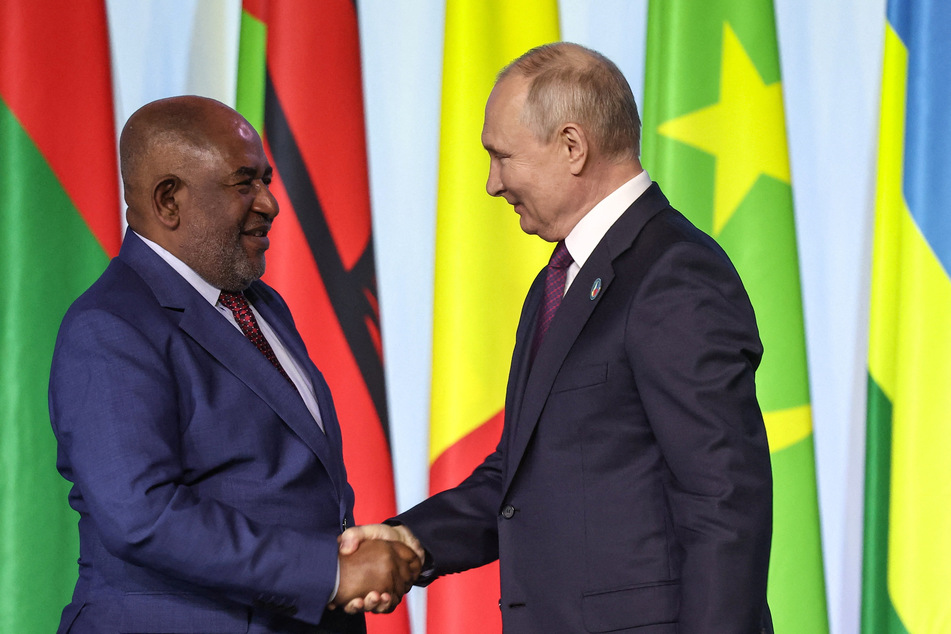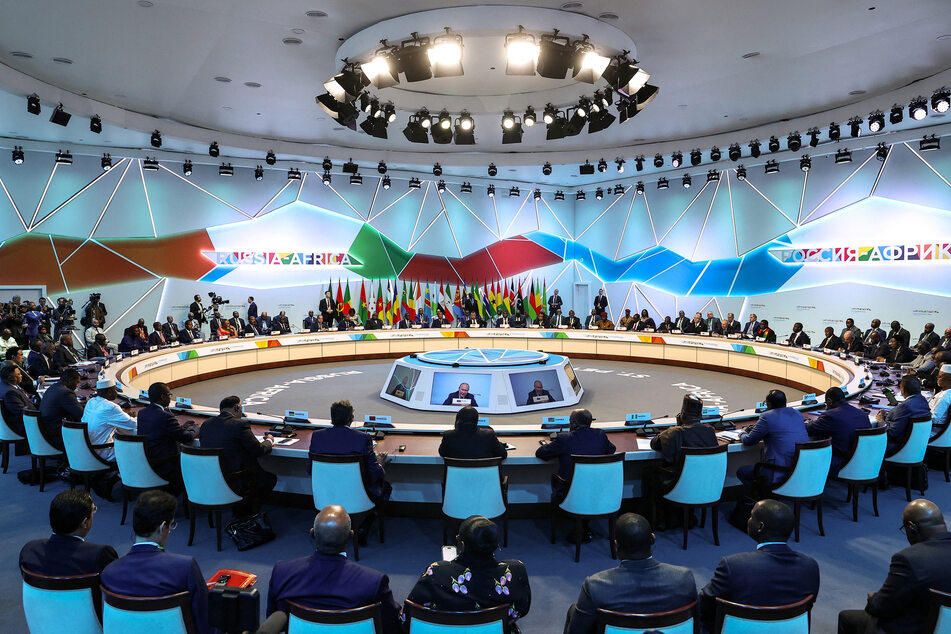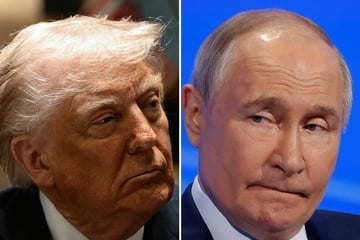Russia signs military deals with over 40 African states, Putin says
St. Petersburg, Russia - Russia has signed agreements for military cooperation with over 40 African countries, Russian President Vladimir Putin announced on Friday in St. Petersburg.

"For the purposes of bolstering the defense capability of the continent’s countries, we are developing partnership in the military and military-technical spheres," Putin said during the second and final day of the second Russia-Africa Summit.
"Russia has signed agreements on military-technical cooperation with
more than 40 African states, to which we supply a broad range of armaments and hardware."
Putin stated that African states received a wide range of weapons and technology, some for free "with the aim of enhancing the security and sovereignty of the countries."
Representatives from African countries have been invited to actively participate in Russian-organized military forums dealing with the technical aspects of the weapons and also maneuvers to become familiar with the equipment and its use.
Putin reiterated that Russia would continue to be a reliable supplier of grain to the continent's countries. The pledge came after Russia ended a deal that allowed Ukrainian grain to be exported through the Black Sea. Ukraine is a major supplier of grain to Africa.
The chairman of the African Union said in his closing address at the summit that Putin's proposals to provide grain were insufficient.
"Yes, this is important, but it may not be quite enough. We need to achieve a ceasefire," Azali Assoumani said.
"President Putin has shown us that he is ready to engage in dialogue and find a solution," he added. "Now we need to convince the other side."
Russia agrees to transport grain to African countries

The British Ministry of Defence (MoD) has warned that African countries will experience prolonged consequences after Russia suspended the Ukrainian grain deal.
"The impact of the war in Ukraine will almost certainly compound food insecurity in Africa for at least the next two years," the ministry said in its daily update on Twitter on Friday.
The expired agreement previously enabled the transportation of 30 million tons of Ukrainian grain to other countries via the Black Sea.
Russia's "blockade of Ukraine" has disrupted deliveries of essential food supplies to countries such as Ethiopia, Kenya, Somalia and Sudan, also leading to rising grain prices, the MoD statement read.
On Friday, the Russian president promised to provide Zimbabwe, Mali, Burkina Faso, Somalia, Eritrea, and the Central African Republic with 25,000 to 50,000 tons of grain for free in the next three to four months.
Russia is also aiming to expand its presence in Africa by opening new consulates and embassies and increasing staff in existing diplomatic representations. The nation has a surplus of available personnel after around 600 Russian representatives were forced to leave Western countries amid tensions, partly due to EU states' suspicions of espionage.
Putin responds to appeals for peace in Ukraine

After appeals for peace in Ukraine at the summit, Putin reiterated his willingness to negotiate over Ukraine.
"We have said several times, I have officially communicated, that we are ready for these negotiations," he said.
However, Russia had no way of forcing either side into such talks, Putin asserted.
Ukrainian presidential adviser Mykhailo Podolyak criticized what he called the Russians' "traditional negotiating whine." He said it "makes no sense" for the Ukraine currently to negotiate with Russia.
"If Moscow wants to negotiate, the path is clear. 1. Get out of Ukraine. 2. Change the political elite. 3. Admit war crimes. 4. Extradite the authors of the war to the tribunal," Podolyak tweeted.
The West accuses Putin of not being seriously interested in negotiations, after he repeatedly denied Ukraine's right to exist as a free, sovereign state in the past.
The United States and other NATO members have repeatedly called on Russia to withdraw troops from Ukraine as a precondition for negotiations. Moscow has rejected this.
Western countries criticized the Russia-Africa Summit as a "PR show" and as an attempt by Putin to make African countries even more dependent on Russia.
During the meetings with the African heads of state and government at the conference, Putin sought to demonstrate that he is not internationally isolated.
According to the Kremlin, 49 out of 54 countries on the continent are represented, with only 17 being heads of state or government, fewer than during the inaugural summit in 2019.
Cover photo: Valery Sharifulin/TASS Host Photo Agency via REUTERS

